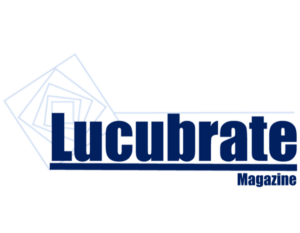[This post has already been read 1909 times!]
You need never stop learning, and one significant benefit of education is learning how to learn. You will know how to find the information you want and read and study effectively to become more knowledgeable about the world around you.
Many ask, “Why is education important?” That is a big question. And the question has many answers. We will give some answers, and we suppose many other solutions to that question might be excellent or better than our answers. This is one of the articles in Lucubrate Magazine that try to answer “Why Education?”
The questions that you ask about the world, now or later, can be explored and answered through your study. The more questions you ask, the more you get to know what is important to you and the world around you. Education thus helps you continue to grow as an individual throughout your life.
When do you start on the education?
An individual’s education starts with the first asked question. It finishes with the last – meaning that it can (and should) last a lifetime. It has a severe impact on your personal growth, which, later on, influences your relationships and success in the business field. By enriching your brain with new and valuable information, you improve its ability to think, analyse, and process.
A child explores and discovers the world by playing, touching, smelling, observing and later asking. The child starts learning as soon as it opens its eyes. The first contact children have with formal education can be kindergarten and various options for pre-school education.
Compulsory school starting ages vary a lot worldwide – mainly from age 3 years to age 7 years. In the USA, children start school when they are five or six years old. Children younger than five can go to a nursery school or pre-school. In most European education systems, compulsory education/training starts at the beginning of primary education, usually at 5 or 6. In Australia, we find the same; children can begin mandatory schooling around 6 years old. In China, primary education is intended for children from 6.
Personal growth
Personal growth is a process of both understanding yourself and pushing yourself to reach your highest potential. It means constantly asking yourself who you are becoming and how you plan to get there. It can involve working on new habits and hobbies, fostering new skills, and practising new strategies to achieve your goals. While this development starts very personal, it radiates outward. It touches every aspect of your life, including your practice and professional growth.
We can define personal growth as the process by which a person recognises themself and continually develops themselves to reach their full potential. Personal growth is an essential part of maturity, success, and happiness.
Personal growth can help you in all areas of your life. It can change how you think about your work and increase your chances of getting ahead.
Personal growth can help you grow emotionally and psychologically to become a more loving, compassionate and positive person. It also serves as a guide to help you notice, correct and change your mistakes and negative habits.
Education and personal growth
Education is a lifelong empowerment process that helps people to understand, achieve personal development, and become empathic individuals. Education enables individuals to develop to their fullest potential psycho-socially, affectively, and physically for an all-around “complete person”.
Education for personal growth in the school
Personal development, creativity and well-being have the potential of becoming the critical outcomes of a learning system. This involves innovative pedagogical methods, enjoyable and inspirational environments, collaborative learning that rests on a competence-based and learner-centred approach.
Schools have an essential role in helping young people develop and manage their physical and emotional well-being and live and work with others in different contexts. Key areas include:
- Social interaction.
- Creating a healthy mind, body and lifestyle.
- Knowing one’s own strengths and weaknesses
- Develop competencies.
Learning experiences can be opportunities for developing the skills to reflect critically on and manage one’s own lifestyle and communicate and collaborate with others. They can also encourage young people to have an attitude of aspiration and the desire to set and achieve goals, and tolerance – valuing diversity and respecting others, and being prepared both to overcome prejudices and compromise.
And because we are all different, education needs to consider the rich diversity of individuals. By being open to and accepting our differences, we will reach out to everyone. We will keep learners in the learning pathway and encourage a positive attitude towards personal growth.
We can conclude that education can create personal growth for everyone.
Lucubrate Magazine February 2022
The photo on the top of the article: Adobe Stock

Why Education?
Other articles that give answers to the question; why education?
If there were ever a time to join Lucubrate NKB, it is now. Every contribution, however big or small, powers our journalism and sustains our future. Support Lucubrate Magazine for as little as $1 – it only takes a minute.
Views: 610





